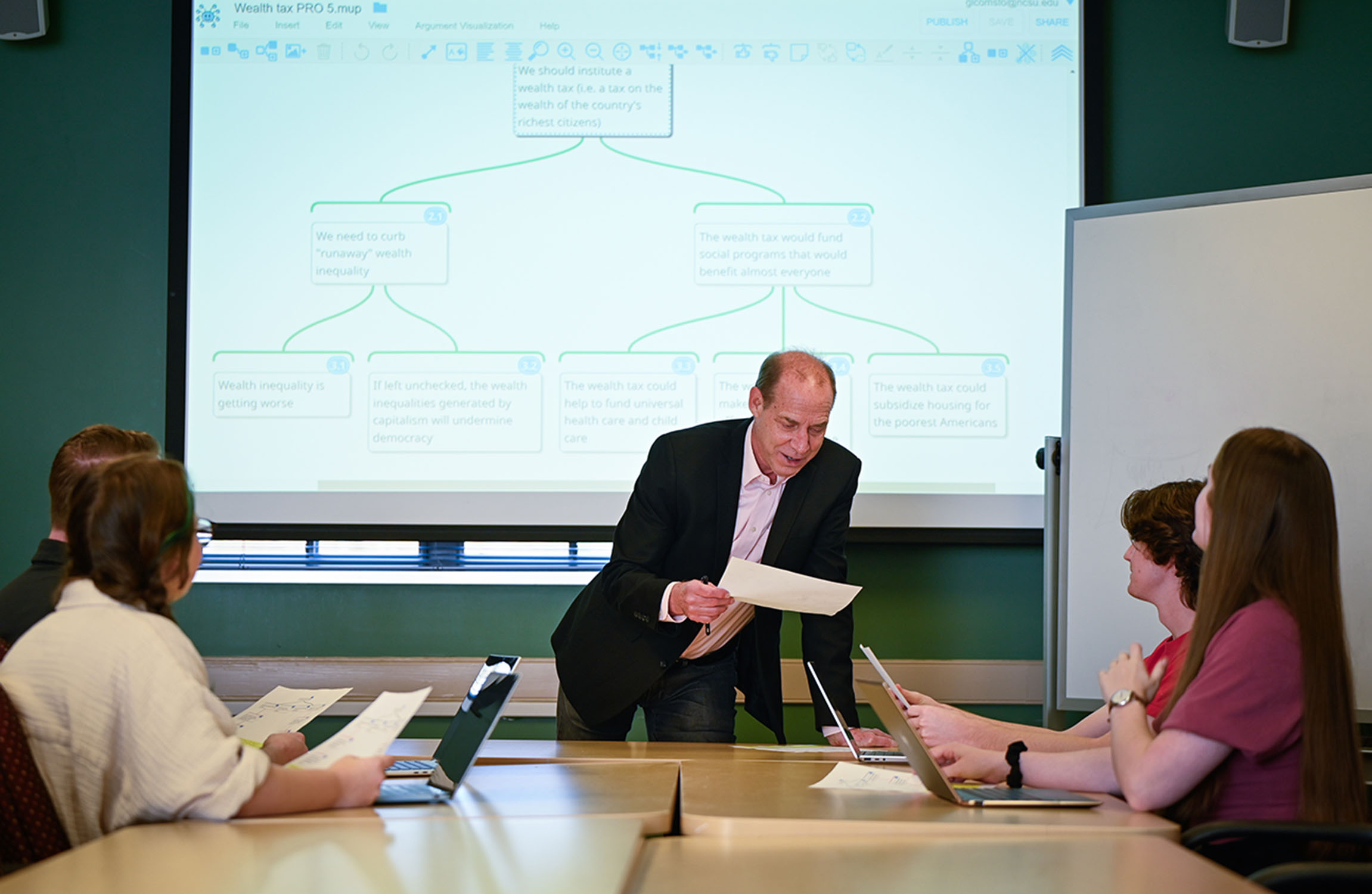Psychologists ask: What motivates older adults to stay active?

As we age, it can be harder to do what’s good for the mind.
Research shows that regularly exercising the brain, for instance, can help older adults mitigate normal declines in cognition, or how we think, understand, learn and remember. However, that effort comes with costs — such as mental fatigue — that typically increase as we get older.
Psychologists at NC State University want to know how those increased costs affect our motivation to engage in cognitively-rewarding tasks.
Under a five-year, $1.84 million grant from the National Institutes of Health, the team of researchers will study how both older and younger adults in Wake County respond to effortful cognitive activity and what factors may influence their participation.
“One of the things that literature has shown us is that when people are engaged mentally, physically or socially, it has positive cognitive consequences,” said Tom Hess, a professor of psychology and the lead investigator of the NIH-funded project. “We have that piece of the puzzle, but the piece we don’t have is why people engage or don’t engage.”
The core component of the project is a longitudinal study that will span the five-year period of the grant. Through lab testing and follow-up interviews, the researchers will examine how changes in effort during engaging tasks affect the motivation of study participants to participate in cognitively demanding — but potentially beneficial — activities in their everyday lives.
Hess said the team will measure the cognitive costs of engagement through cardiovascular response, specifically blood pressure.
“As you’re involved in a task and the brain uses more oxygen, your cardiovascular response ramps up; so, blood pressure will give us a good representation of how engaged someone is,” Hess said. “We’ll look at five years of changes in cardiovascular responses to engagement and effort and compare them to changes in intrinsic motivation.”
The project builds off a theoretical framework that has evolved out of the NC State Adult Development Laboratory and was formally presented in a paper published in Perspectives on Psychological Science. The framework, called “selective engagement,” suggests that motivation is a key factor in explaining why older adults show declines in cognitive abilities in lab testing, but not necessarily daily life situations such as the workplace.
The current study will try to reveal some of those motivators. For instance, an older adult’s attitude toward the effects of aging may play a large role in how much they engage in positive cognitive activity, Hess said. That’s something the researchers will study as part of the current project.
“A person who has a more positive attitude may see the activity as demanding, but doesn’t necessarily equate it to the negative effects of getting older,” Hess hypothesized. “They may be more likely to engage in an activity over time.”
For the project, Hess said he’ll be working with several NC State graduate students, in addition to Associate Professor of Psychology Shevaun Neupert, and Duke University Psychology and Neuroscience Professor Andrew Sherwood.
Individuals interested in participating in this study or related projects can call 919-515-9063 or email cognitivedevelopment@ncsu.edu.
- Categories:


